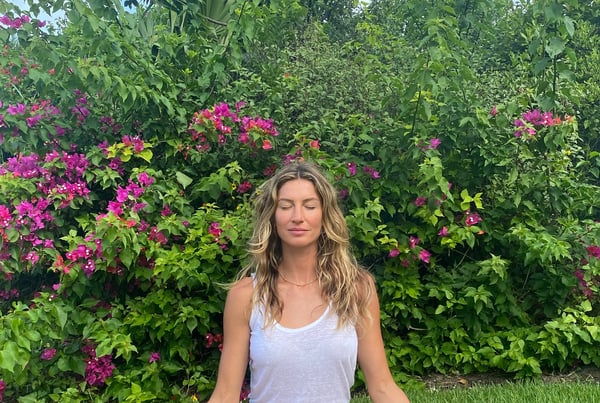This generation is often referred to as the Indoor Generation. This is due to the excessive amount of time that we spend indoors, flickering away at some form of technology. This unhealthy method of living has drawn the concern of many, most notably the Duchess of Cambridge, Kate Middleton.
Kate Middleton Wants Your Kids to Play Outside
The Duchess of Cambridge is in the midst of designing a garden. This is being done in an effort to inspire parents to get their children outside. The Back to Nature garden is set to be officially unveiled to the public in a few days as part of the annual Chelsea Flower Show.
This past Saturday, the mum-of-three shared photos of her preparations for the flower show. The garden also has ties to Kate’s work on early childhood development. A year ago, Kate set up a steering group that had expertise in the early years of childhood development. The group was tasked with regularly advising Kate on how Britain could better support its children.
View this post on Instagram
“In recent years I have focused much of my work on the early years and how instrumental they are for outcomes later in life,” She said, ahead of the garden’s unveiling. “I believe that spending time outdoors when we are young can play a role in laying the foundations for children to become happy, healthy adults.”
Early childhood and nature
The steering group also provided evidence that revealed that a child’s brain develops up to 90% of its adult size within the first five years of life.
“Understanding that our brain develops to 90% of its adult size within these first five years helps crystallize how our experiences in these earliest years are so impactful, and influences who we become as individuals…What happens in our early years is vital to our being able to engage positively in school, and in work and society, and ultimately, to how we bring up our own children.”
According to the Kensington Palace’s Instagram page, the garden will feature a swing seat, rustic den, and a camp-fire. It will also have tree stumps, stepping stones, and a hollow log for children to play on. There will also be a high-platform tree house, clad in stag horn oak that will serve as the garden’s centerpiece. The intention is for the garden to encourage creative play and discovery for all generations. There is also hope that the garden will inspire interaction with the natural environment.
The Duchess of Cambridge is calling for parents to encourage their children to spend more time outdoors. That said, one has to wonder just how beneficial some outside-time can be to your child’s life.
Benefits of children playing outside
Boosts cognitive performance
Allowing your child to explore and amuse themselves outdoors can make them more creative. It can also improve their concentration skills and boost their classroom performance.
By helping them develop skills that’ll better their planning, prioritizing, and cognitive performance, it’s no wonder that children who play outdoors grow up to find themselves engaging in the arts and science fields. Additionally, children diagnosed with ADHD were found to exhibit fewer symptoms after spending a significant time outdoors.
Improving social skills
Taking your child to the park and giving them the chance to play with other children encourages their social development.
This will develop their communication and negotiation skills. It will also help to better their skills in terms of conflict resolution. The outdoor space is also less intimidating thus your child may be more willing to engage in games and activities with the other children.
Lowers risk of obesity
Childhood obesity is a growing crisis, with the World Health Organization citing that more than 17.6 million children under five are estimated to be overweight (1).
Playing outdoors is a great way for your child to exercise and stay physically active. Be it running, lifting things, throwing a ball, or simply jumping around. By staying active outdoors, your child will be less likely to be overweight during their childhood and well into their adulthood.
Makes them happier
It may be hard to believe, but our children are not immune to the stress of the world. They can also be plagued by stress and feelings of anxiety. Thankfully, a little time outside can help to alleviate these negative emotions.
Strengthens bones and the immune system
Vitamin D is produced in the body after the skin is exposed to sunlight. When absorbed, the mineral helps the body to better absorb calcium, which is essential for healthy bone production. Additionally, in a study published in the British Medical Journal, vitamin D also helps regulate and support the immune system.
Unfortunately, vitamin D deficiency is quite common as not enough people are getting the amount they need.
Symptoms of the deficiency include sore bones and mood swings. Additionally, low levels of vitamin D can increase the risk of heart disease, diabetes, and depression. By allowing your children to play outside, you’ll ensure their levels of vitamin D remain adequate and that the strength of their bones and immune systems do not diminish.
However, while sunlight is important, it’s important to ensure that your child does not get too much sun. Excess sun exposure can increase the risk of skin cancer thus do not forget to teach your little ones about effective sun protection.
They become environmentalists
Are you worried about the type of world you’re leaving for your children? If so, engaging them in nature is a great way to get them more environmentally conscious about their surroundings.
The future of our planet depends on them thus encouraging them to play outdoors will help them learn to appreciate it. By developing a high sense of connection to nature, our little ones will likely engage in environmentalist behavior such as recycling and being more water-conscious.
Bottom Line
I always feel happier and relaxed when I spend some time outdoors. You must be freeing your children to be able to blissfully run around without a care in the world. Furthermore, you shouldn’t be afraid to join them as you can also benefit from immersing yourself in nature. That said, click here for 8 ways on how you can bring nature into your home through décor.






Great article, Pie, and good for Kate! Regular, non-burning Sun exposure is vital for human health. Here are the reasons:
Sun exposure is absolutely essential for human health. As a follow-up to my first comment, here are a few facts you should know about the beneficial effects of regular, non-burning sun exposure:
•Seventy-five percent of melanoma occurs on areas of the body that are seldom or never exposed to sun.
•Women who sunbathe regularly have half the risk of death during a 20-year period compared to those who stay indoors.
•Multiple sclerosis (MS) is highest in areas of little sunlight, and virtually disappears in areas of year-round direct sunlight.
•A Spanish study shows that women who seek the sun have one-eleventh the hip-fracture risk as sun avoiders.
•Men who work outdoors have half the risk of melanoma as those who work indoors.
•An Iranian study showed that Women who avoid the sun have 10-times the risk of breast cancer as those who embrace the sun.
•Sun exposure increases nitric oxide, which leads to a decrease in heart disease risk.
•Sun exposure dramatically improves mood through production of serotonin and endorphin.
•Those persons who spend many hours daily outdoors have only 1/50 the risk of contracting Parkinson’s disease!
•Sun exposure increases the production of BDNF, essential to nerve function.
•Avoidance of sun exposure is a risk factor for death of a similar magnitude as smoking.
•Sun exposure can produce as much as 20,000 IU of vitamin D in 20 minutes of full-body sun exposure.
•In the U.S. vitamin D deficiency in children has increased by 83 times during a 14 year period. That is likely due to indoor living and sunscreen use. More information: Sunlightinstitute.org, and read Dr. Marc Sorenson’s book, Embrace the Sun.